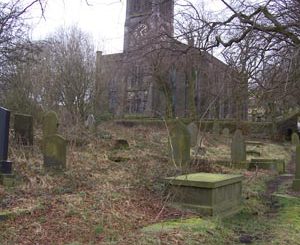Fairies Of St Fillans (2005)
In November 2005 a housing developer was prevented from moving a rock as the local population of St Fillans claimed it would kill the fairies living under it. The following article entitled ‘ Fairies stop developers’ bulldozers in their tracks’ was published in The Times on 21 November 2005.
VILLAGERS who protested that a new housing estate would “harm the fairies” living in their midst have forced a property company to scrap its building plans and start again.
Marcus Salter, head of Genesis Properties, estimates that the small colony of fairies believed to live beneath a rock in St Fillans, Perthshire, has cost him £15,000. His first notice of the residential sensibilities of the netherworld came as his diggers moved on to a site on the outskirts of the village, which crowns the easterly shore of Loch Earn.
He said: “A neighbour came over shouting, ‘Don’t move that rock. You’ll kill the fairies’.” The rock protruded from the centre of a gently shelving field, edged by the steep slopes of Dundurn mountain, where in the sixth century the Celtic missionary St Fillan set up camp and attempted to convert the Picts from the pagan darkness of superstition.
“Then we got a series of phone calls, saying we were disturbing the fairies. I thought they were joking. It didn’t go down very well,” Mr Salter said.
In fact, even as his firm attempted to work around the rock, they received complaints that the fairies would be “upset”. Mr Salter still believed he was dealing with a vocal minority, but the gears of Perthshire’s planning process were about to be clogged by something that looked suspiciously like fairy dust.
“I went to a meeting of the community council and the concerns cropped up there,” he said. The council was considering lodging a complaint with the planning authority, likely to be the kiss of death for a housing development in a national park. Jeannie Fox, council chairman, said: “I do believe in fairies but I can’t be sure that they live under that rock. I had been told that the rock had historic importance, that kings were crowned upon it.” Her main objection to moving the rock was based on the fact that it had stood on the hillside for so long: a sort of MacFeng Shui that many in the village subscribe to.
“There are a lot of superstitions going about up here and people do believe that things like standing stones and large rocks should never be moved,” she said.
Half a mile into Loch Earn is Neish Island. From there the Neish clan set forth to plunder the surrounding country, retreating each time to their island. Early in the 17th century, the MacNabs retaliated from the next valley, carrying a boat over the mountains, storming the island and slaughtering most of the Neishes.
This summer Betty Neish McInnes, the last of that line in St Fillans, went to her grave — but not before she had imparted the ancient Pict significance of the rock to many of her neighbours.
“A lot of people think the rock had some Pictish meaning,” Mrs Fox said. “It would be extremely unlucky to move it.”
Mr Salter did not just want to move the rock. He wanted to dig it up, cart it to the roadside and brand it with the name of his new neighbourhood.
The Planning Inspectorate has no specific guidelines on fairies but a spokesman said: “Planning guidance states that local customs and beliefs must be taken into account when a developer applies for planning permission.” Mr Salter said: “We had to redesign the entire thing from scratch.”
The new estate will now centre on a small park, in the middle of which stands a curious rock. Work begins next month, if the fairies allow.




Recent Comments